If this challenging 2020. has taught us something, is that we have to value what we have and take care of each other, more than ever. As the world transforms, the event industry is actively listening and taking actions for the community and event industry family.
Hotels and restaurants around the world are reopening, owners and managers are obliged to implement new measures for the protection and physical distancing between guests in order to prevent the spread of the virus. In those situations, they are becoming creative.
Creativity is the key
A restaurant in Amsterdam presented little greenhouses for diners to enjoy their meal, while social distancing. Burger King in Germany offers huge paper crowns to ensure customers stay 2 meters apart from each other. And the most interesting design lately is definitely so-called ’’bumper-tables’’ in Maryland restaurant, which allow people to have fun in practicing social distancing while eating and talking in outdoor settings.
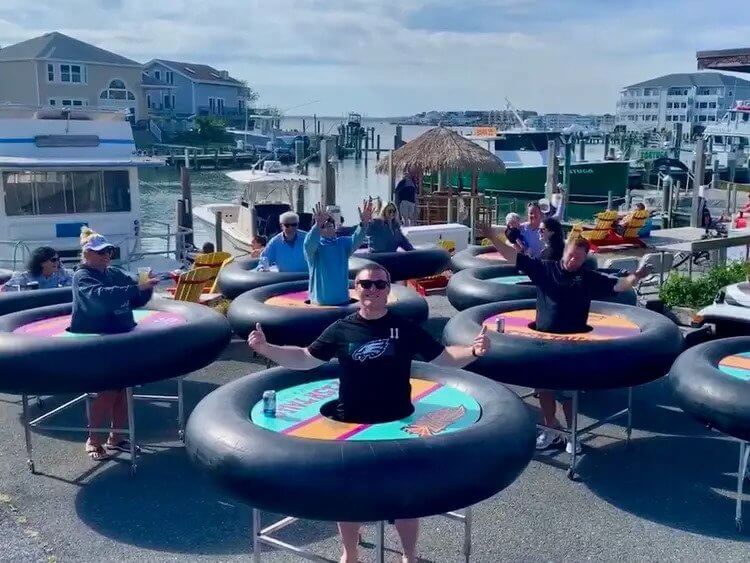
Meryland restaurant bumper tables 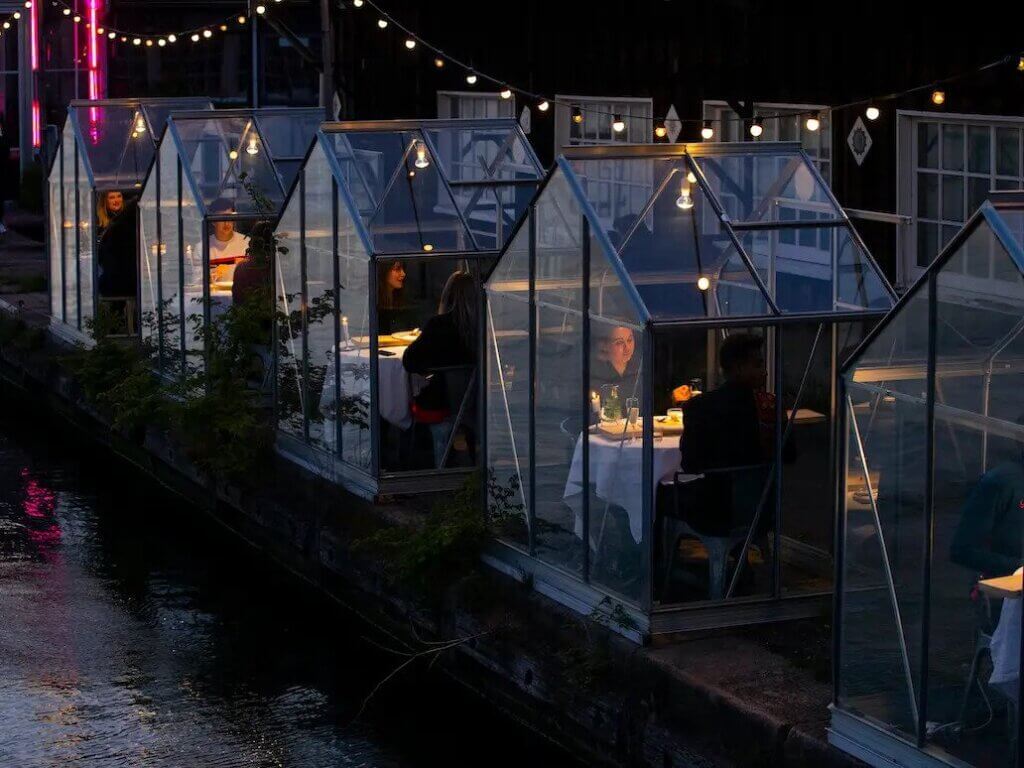
Amsterdam restaurant safety idea with greenhouses 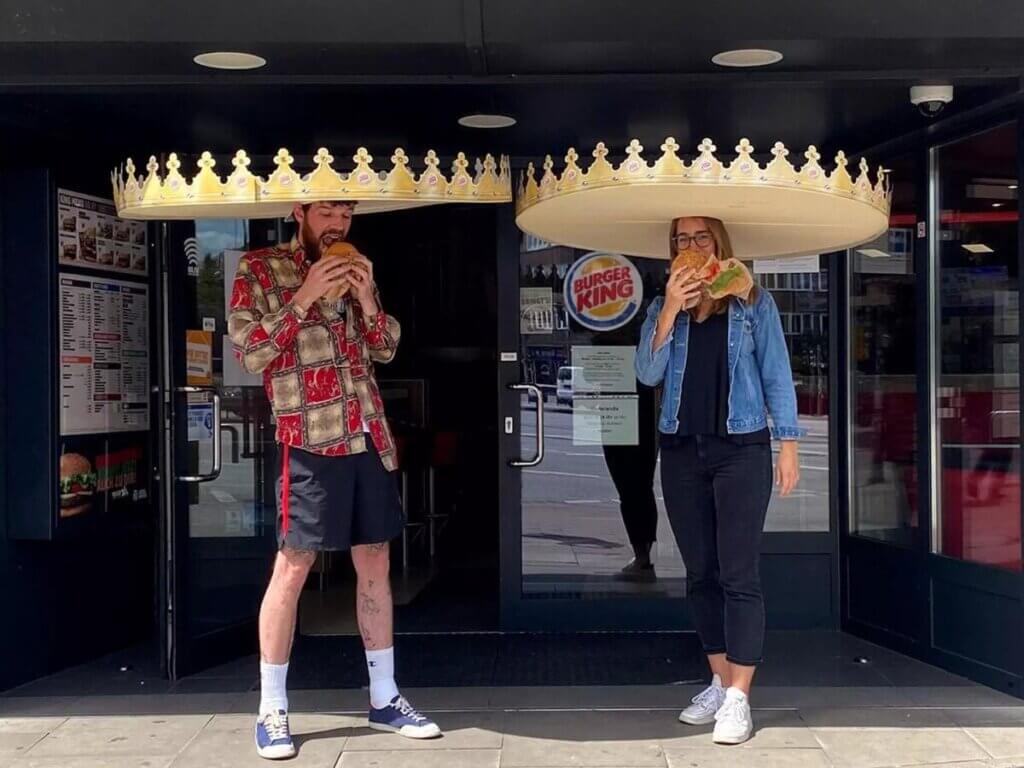
Burger King social distancing with large crown hats
Besides ensuring that every event in the future has disposable products such as masks, hand sanitizers, face shields, isolation gowns, and hygiene stations, event producers came to more innovative ideas on how to implement social distancing.
They are now making dining tables with Plexi dividers, redecorating venues with strategically placed greenery so that bigger space between guests now doesn’t have to be cold and seem sparse. Seats between guests that are supposed to be empty, due to distancing, could be filled with branded cushions instead of warning yellow tape.
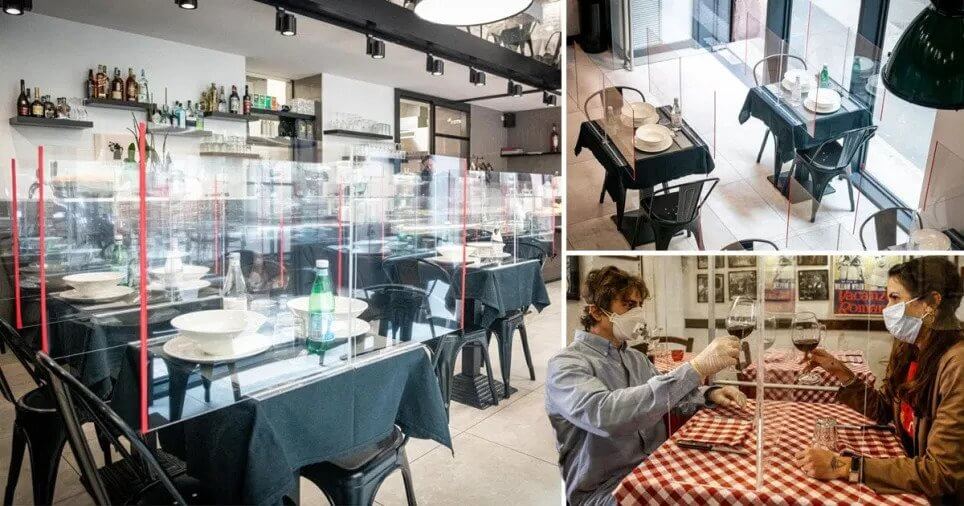
Restaurant Plexi dividers 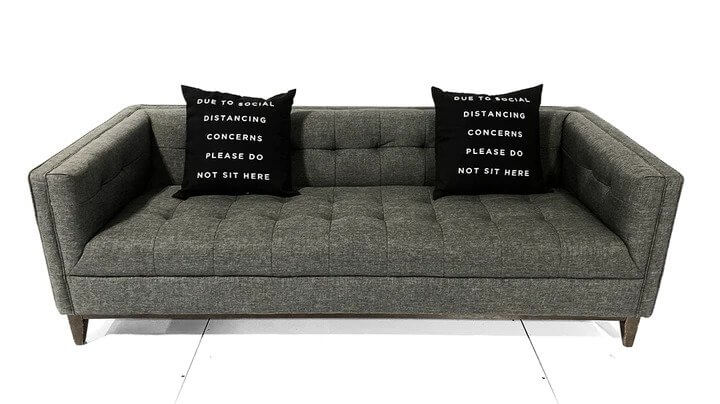
Social distancing with branded cushions 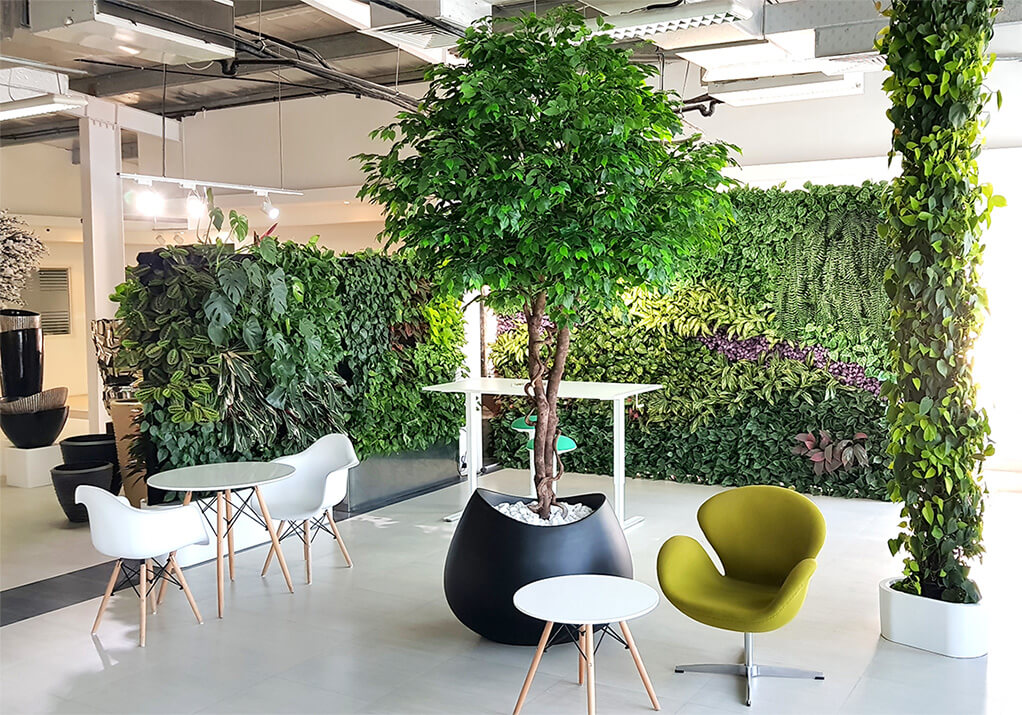
Strategic greenery inside 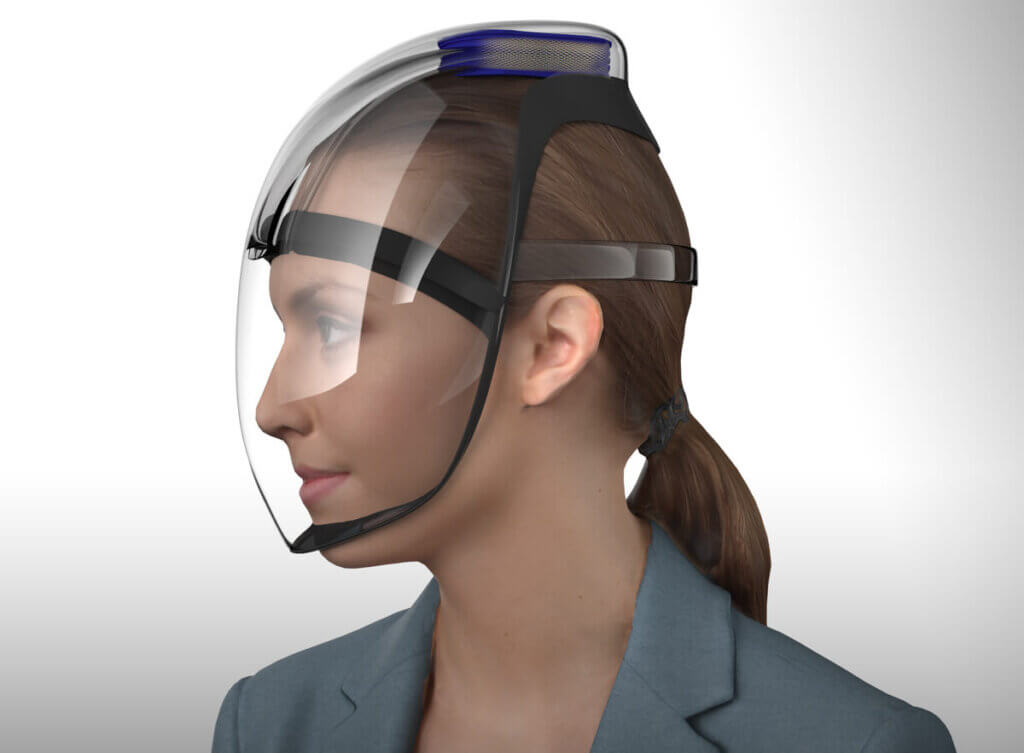
Face mask-shield
Floorplans that keep the guests safe
We are all aware that live events will look a little bit different, at least in the beginning. Physical distancing will be a must and floor plans are already being organized in that way. Event planning software companies are developing and launching new tools for physical distancing for mapping out socially distanced floorplans, making it easier for event planners to arrange seating distances. But the creative part is still on event planners.
Besides using strategically placed greenery, florals, draping, and furniture to keep guests apart while also keeping the room from looking large and empty, there is an idea to break the conference room setting into a two-meters grid, where every person will have its table and chair.
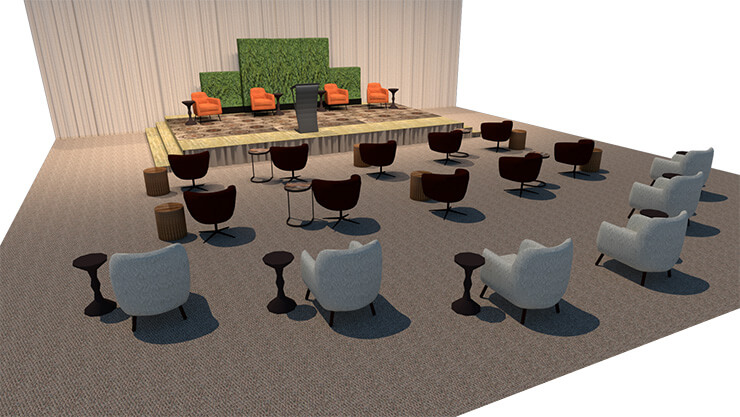
Floorplan event social distancing 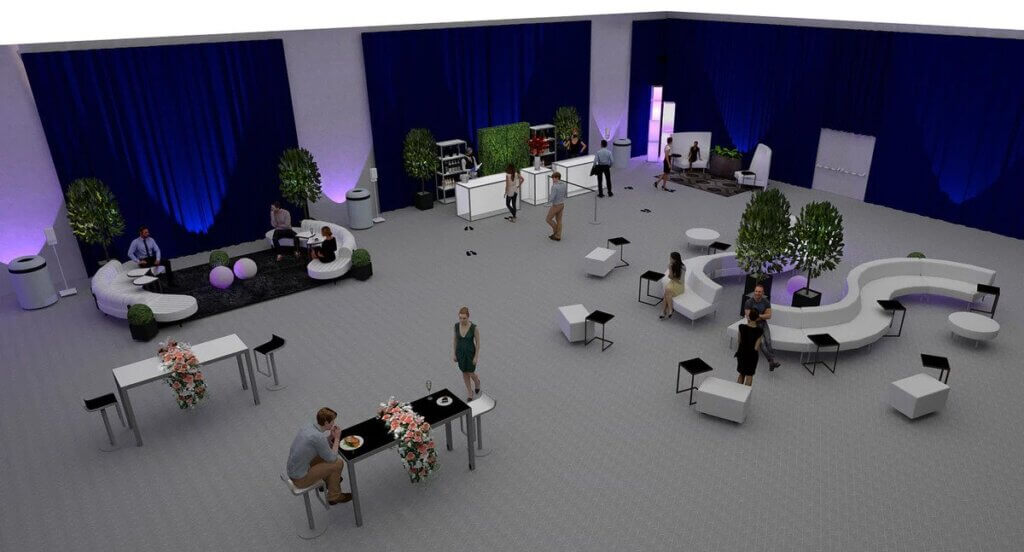
Floorplan space social distance 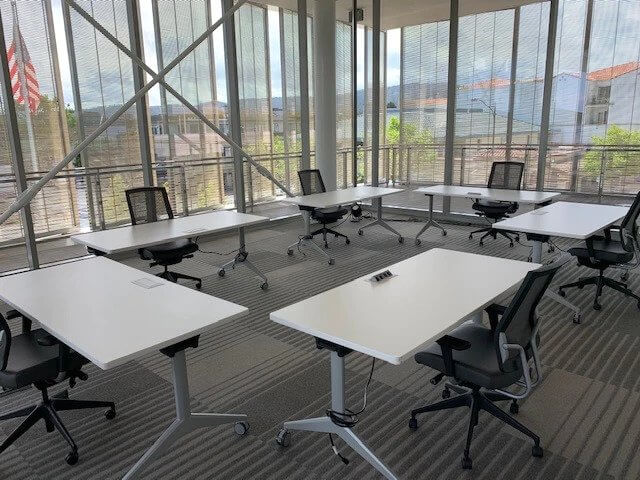
Meeting social distancing
Safety measures and checkpoints
Having a sanitation policy in place is another crucial element for any event venue looking to restart its group business and prepare for future events. Have a plan ready for handling those who may contract the virus at your venue or while attending an event at your hotel. These few are directly relevant to events:
- Social distancing and protective equipment
- Temperature checks and other testing
- Isolating, and contact tracing
- Sanitation and disinfection of common and high-traffic areas
- Policies and procedures for workforce contact tracing following positive coronavirus tests
The meetings that will take place in person will need to have a very strong reason to happen. They will likely be limited to domestic events and have virtual alternatives as a replacement until there is a vaccine or other cure. Small, local safe meetings will be the way the event industry rebuilds and makes its comeback: Internal meetings, small workshops, and seminars, held locally with attendees from the near vicinity and the same geographic area. The meetings will also likely be short meetings, as prolonged, close contact is thought to further spread the virus.
Event food and beverage during times of social distancing
When it comes to F&B at events, self-service buffets likely won’t be a viable option for a while. Seated dining could be an alternative option if there are available staff members trained in sanitation and food-handling measures. These extra steps and layers of caution could tack on added costs to F&B, so it’s in venues’ best interest to offer cost-effective solutions for food and beverage at events. One option could be pre-packed meals that attendees pick up from fridges or multiple locations, or have the boxed meals already placed at their seats at the event.
Prepare for the future
Hosting meetings and events in a world affected by COVID-19 will require major adjusting — especially on the part of planners and venues. It’ll take a combined effort in order to restart the industry and begin hosting in-person functions again.
The most important thing is to be prepared. We think we are, but are you? Share your thoughts and ideas below.
Alex
I still cannot comprehend how to eat with a mask on, and that was the starter idea.